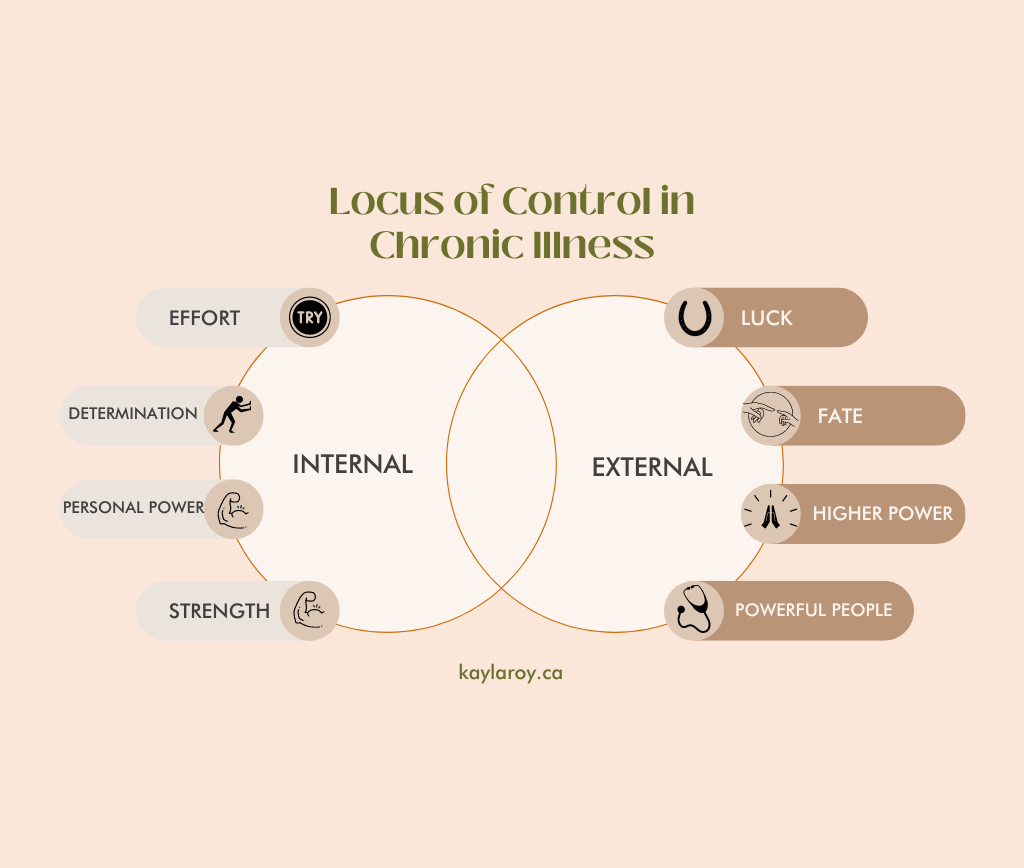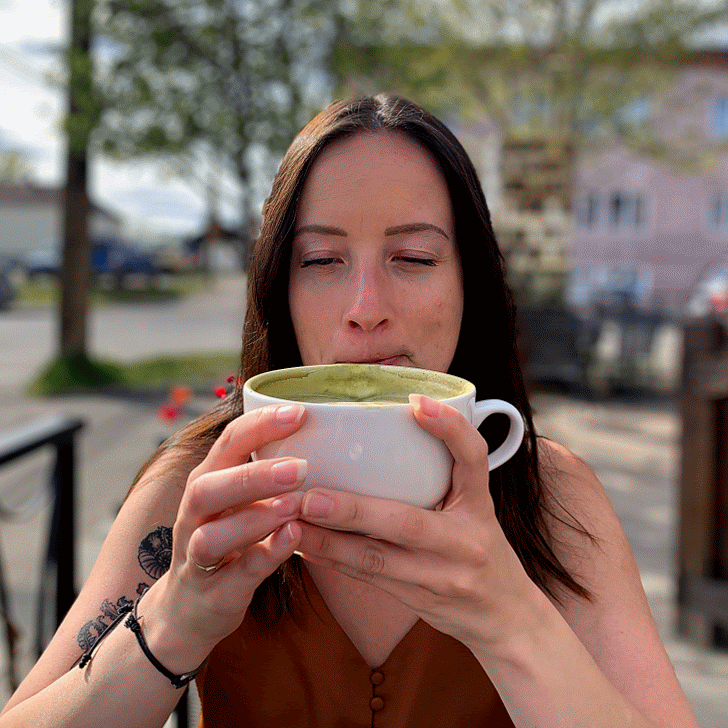“Locus of control is the degree to which people believe that they, as opposed to external forces, have control over the outcome of events in their lives.”
American psychologist Julian B. Rotter developed the concept of locus of control in 1954. LOC is a spectrum of two extremes of personality types which can be reduced to a person’s beliefs of what is within their control and what is not.

Internal Locus of Control
The people who have a stronger faith in internal factors are self-empowered personalities. They believe that they control the outcome of situations and are highly self-motivated. In relation to chronic illness, this can look like “control” over everything they eat, counting calories or macros, and doing their own reading before trusting anything. Unfortunately, when health challenges are faced, high internal LOC people blame themselves and ruminate on what they could have done differently. Men are more likely to have an internal locus of control. The longer a person is sick, the lower their internal LOC will become as they begin to lose internal strength.
The internal LOC must be defined by more than distrust in medical professionals as this is also affected by race. Black, indigenous and Hispanic people have less trust in their doctors than white people, especially if they have lower incomes, due to a long history of medical racism and gaslighting.
External Locus of Control
People who have a stronger faith in external factors tend to believe that life is a game of chance and that regardless of their actions, events will unfold the way they want to. External LOC people are faster to comply or submit to medical professionals and give away their power more easily. They do not trust that they could make the right decision for themselves and outsource their decisions. The external LOC experiences less frustration with the medical system than the internal LOC because they do not place blame on themselves when they face health challenges. Having a high external LOC also reduces the likelihood of compliance with a protocol, ie: taking medications or supplements.
Which is Better?
The short answer: neither.
Neither extreme improves the chance of remission. High Internal LOC leads to more stress and frustration, whereas high External LOC leads to indifference and higher instances of depression. There are benefits to both personalities when they are in balance and ramifications to either extreme.
Mindset Work
The good news is that if your locus of control is affecting your life in a negative way, you can change. (If you want to.) It is proven that personality can change and develop with therapy. It would be difficult to examine these thought patterns without an unbiased third-party intervention.
I have seen both in my own practice. There are people who want to be healed with the bare minimum effort (external LOC) and then others aren’t coachable because they have already made up their minds about what they will or won’t do before speaking (internal LOC). Working with a health practitioner that is aware of your locus of control, based on your life experiences, can help redirect your frustration or apathy while you go through a protocol or treatment. It is good practice to examine your own locus of control before working with any kind of practitioner.
Are you open-minded and ready to look at the next layer of your health? My signature program, HELD is a 12-week one-on-one supported journey that includes stool analysis testing, a custom protocol, and ongoing support. It is packed with educational content and recipes.
Julian Rotter Bio https://en.wikipedia.org/wiki/Julian_Rotter
Medical Racism https://www.medicalnewstoday.com/articles/medical-mistrust-linked-to-race-ethnicity-and-discrimination#Tackling-a-structural-problem
Locus of control in chronic illness https://www.ncbi.nlm.nih.gov/pmc/articles/PMC6630391/#:~:text=The%20locus%20of%20control%20
High External LOC linked to depression https://www.ncbi.nlm.nih.gov/pmc/articles/PMC6424533/
Personality traits can change with therapy https://pubmed.ncbi.nlm.nih.gov/28054797/
Locus of control quiz: https://my-personality-test.com/locus-of-control









